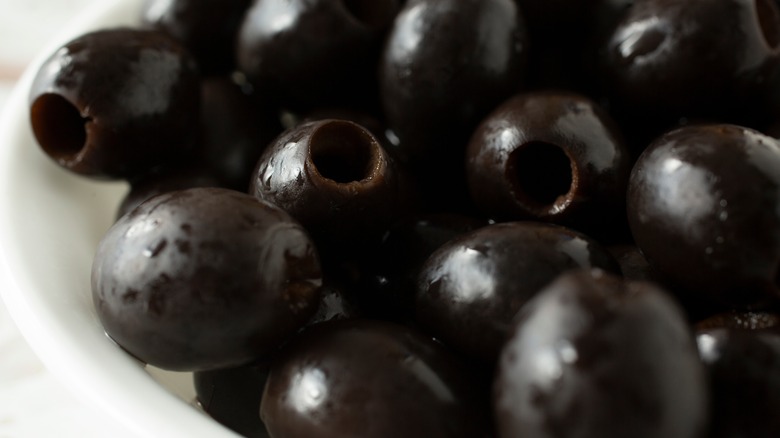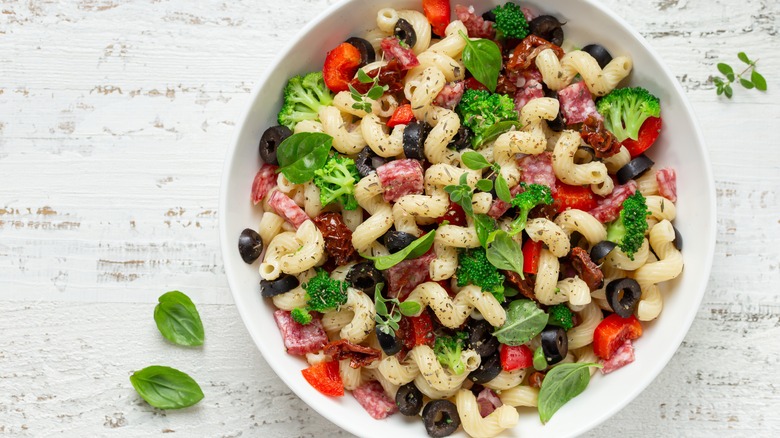How And Why Some Olives Are Turned Unnaturally Black
Olives come in a wide variety, but one of the most common versions you're probably used to seeing is the canned black olive. As you know, they also come in other forms like the briny, green Spanish olive that garnishes your martini. (I'll take mine extra dirty, please.) But something you might not know is that canned black olives aren't naturally ripened until they turn black — but they aren't dyed to take on that color, either.
Raw olives are so bitter they're unpalatable, which means that they need to be treated in order to be considered even remotely enjoyable. This is done to remove a phenolic compound known as oleuropein, which is, in my own scientific terms, "gross to eat." That means olives must be cured in order to remove that horrible flavor, which can be done using dry salt, water, brine, or the alkaline solution lye (which is the fastest method).
Canned black olives have been cured chemically using the lye method. They're then processed with oxygen and an iron compound called ferrous gluconate, which eventually gives those olives that jet-black coloration. So the olives are turned black, but they don't bleed out artificial black dye when you put them on your homemade nachos because they aren't dyed. This process does take quite a bit of flavor out of the olives, though, which is why you mostly end up with just a salty and fleshy result that's noticeably less bright than the olives you can get from the supermarket olive bar.
How to use up a can of black olives
That isn't to say that black olives don't have their use in the kitchen. First of all, you can enjoy them right out of the can, as-is. Since they're so mild, you'll probably find yourself eating a few more than you intended. But they're also great for things like tacos and nachos (though the original nacho recipe notably doesn't contain black olives), where a regular cured olive might actually be considered too flavorful. And then, of course, they make a good addition to things like pasta salad, especially when you're looking for an ingredient that has a lot of moisture in it that won't weep out extra liquid.
The good thing is, since they're not dyed, you won't need to worry about the olives staining your pasta an unappealing black color. And thankfully, despite being treated with that alkaline solution, canned black olives don't have a chemical taste to them. Turning them black might not be a natural process, but it's better than the alternative of trying to eat the extremely bitter raw version, which definitely wouldn't go well on your taco salad.

